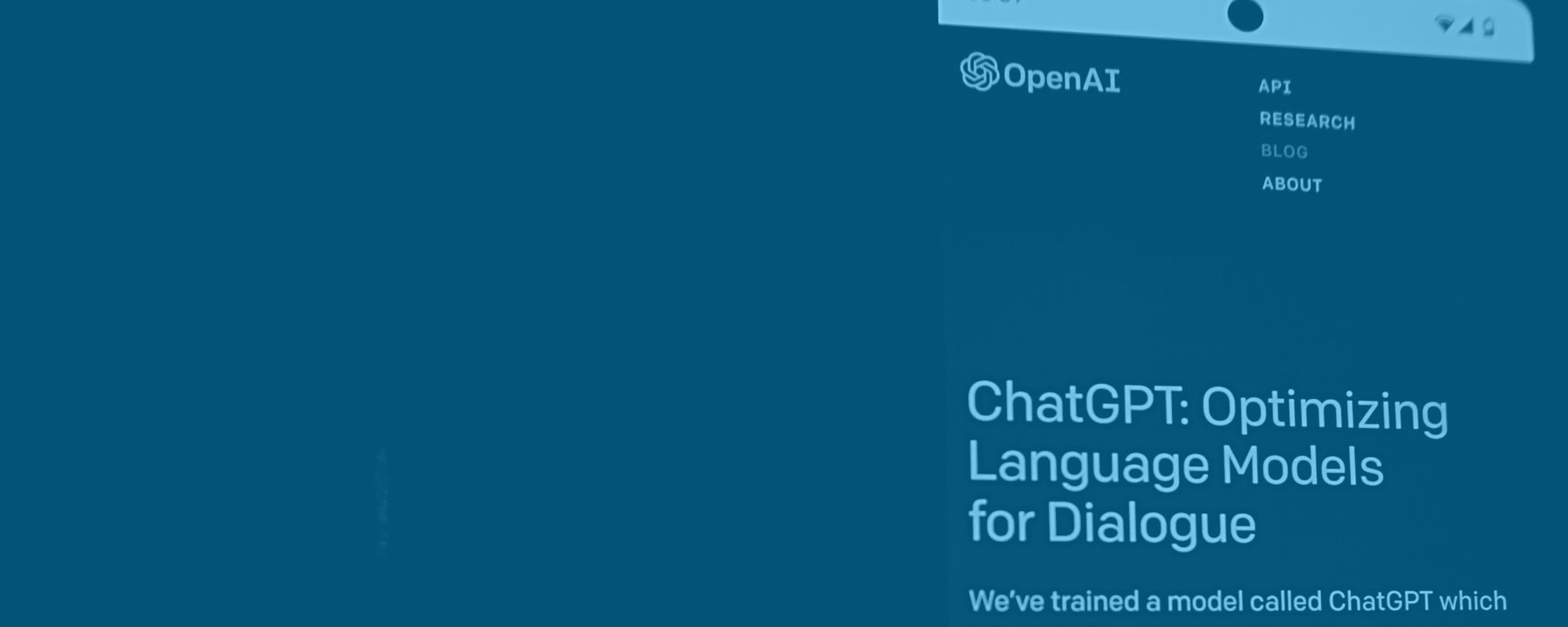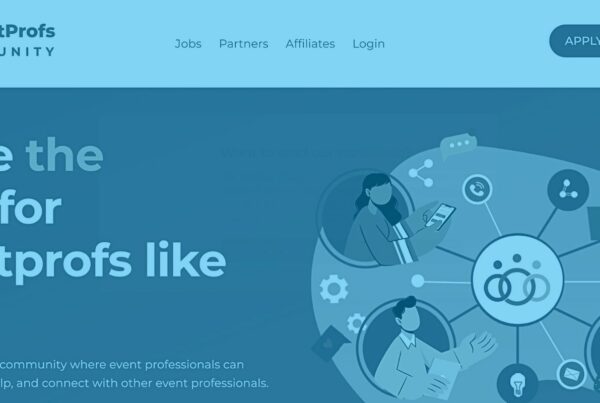Unlike the Metaverse, artificial intelligence (AI) is progressing rapidly. Will and Brandt published the ChatGPT, DALL-E, and Other AI Tools You Need to Know at the end of February 2023. After only a few weeks and many headlines later, they’re ready to revisit the ever-evolving topic. In today’s episode of the Event Tech podcast, Will and Brandt share some of the latest AI technology news, their thoughts on how you should embrace the fast-growing technology, and what they’d like to see from it moving forward. Let’s get right into it!
Google vs. Microsoft Battle for the Future of AI
Both Google and Microsoft have recently publicly discussed their efforts to rival ChatGPT with their own AI technology. “Google’s is called Bard, and Microsoft integrates it into Bing and Edge,” says Brandt. “It will be fascinating to see how they’re implemented, as both are limited right now. Google clearly sees this as a three-alarm fire. The way Microsoft is doing it is, they’re going to have citations. It helps it be more accurate but doesn’t mean it can’t be inaccurate. My money is that Google will not do that because they want search revenue.”
Thinking back to who AI tools will impact most, Brandt thinks a specific set of companies should be concerned. “Companies like Conference Direct and other venue finders should be scared. Imagine going into Bing and saying, ‘Find me a venue that can fit 350 people and has an outside cocktail space.’ Then the AI grabs that for you and says, ‘I found five venues within 30 miles of Dallas that meet your criteria.’ That’s one thing I didn’t realize before that has the potential for serious disruption.”
Will thinks content creators, bloggers, and those who find and share research should be the most concerned. “As a content creator, I should be scared if I’m writing blog posts and things like that,” he says. “The traffic will no longer come to your website, so there will be less chance for you to convert a lead. That makes me feel like the content age will die soon. You’ll still make content because AI needs content to feed it, but you won’t be able to monetize it how you used to.”
“There’s so much potential for information,” continues Will. But on the downside, “if you’re a withholder of information, your job vanishes. If your sole competitive advantage is that you have information and the ability to gather or deliver that information, that will go away. Everyone will have well-organized and summarized information at their fingertips.”
Brandt agrees, but he also disagrees. He feels differently about how creatives will continue to play a role in the future of content. “I stand by what I’ve said in the past: I don’t think this will make creatives disappear. There’s a lot of crap content on the web, whether clickbait or link farms. Humans generate all of those things now, which can be equally terrible when generated by AI technology. So I think a lot of that automation will be done by AI. But from the creative side, I’m not terribly worried about it. I think there will still be a need for human discernment,” he concludes.
You Have to Embrace Change to Remain Competitive
Avoiding engagement with or learning about AI technology can lead to some pretty significant missed opportunities for growth, advancement, and innovation, which is Will’s biggest fear. “At least play with this stuff, to be aware.” He compares it to the naysayers of social media ten years ago. “The tools aren’t 100% there, but can you use them to leverage further? Yes. Now, you can’t get hired if you don’t know how to use Google Docs. I think about it in the same way. In the future, someone will say, ‘I need you to find venues, and I want you to use these tools. If you don’t, I’ll find someone else who will.’”
Brandt applies this same thinking to other internal processes. “In our industry, consider turning around a request for proposal (RFP). Imagine saying to an AI, ‘Here are four RFPs. Line it all up and show me the differences.’ Leveraging these technologies to speed up our processes, so I don’t have to spend half an hour thinking about what to write, shortening the time to come up with stage design, or shortening response times to give you a leg up, it’s going to be amazing. Organizations will need people that can do this stuff. Your social media analogy is apt; there will be something similar with these AI tools where people who figure out how to use these prompts to generate useful works of art will be in high demand. And that’s across all industries, including ours.”
AI for Events: What We Need Moving Forward
“Hopefully, what folks take away from this is the clear difference in how we’re talking about this again versus how we’ve been talking about the Metaverse,” says Brandt. “I’m not sure what the benefits are to a lot of the Metaverse stuff. For example, why is it better for me to be half a torso with no legs floating around a work environment when we talk on the phone? But I definitely see the possibilities of how AI will impact our industry.”
Additionally, the Metaverse requires expensive and specific hardware. “With AI, you don’t need anything new. You just type a URL into your browser and start using this stuff immediately,” adds Will.
“What’s interesting to me is that they’re going to make developer versions available to Azure service users, for example,” continues Will. User interface plays a huge role in how adoptable tools are, which is another reason he thinks AI tools like ChatGPT make waves while the Metaverse only creates ripples. “ChatGPT existed for two or three years, but it wasn’t until they put the chat system on it that it’s gone viral. It’s about the user interface.”
“I watched one video where they showed the Microsoft AI tool in Edge. If it’s in your browser, it will let you layer it on top of the entire web or whatever you’re looking at. It’s the equivalent of taking AR goggles and putting them in front of your computer screen.” Example use cases include asking the tool to summarize the web page, explain a white paper graphic, or compare a product to another product on the web. “That’s where the future is. That’s what I feel is missing from ChatGPT. I want to interface with the information I have and know.”
What do you think? Who should be concerned about the rise of AI technology for events, and why? “Brandt and I are just two people who talk back and forth about all the ideas and scenarios we could use this for. I know so many of you are thinking of ways to implement this,” says Will. We want to hear from you, so email us your thoughts. Who knows? Maybe your ideas will be the topic of conversation in our next Event Tech podcast episode.








